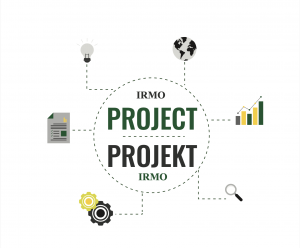
Project duration: 15/4/2024 – 15/12/2025
Client: Ekumenska inicijativa žena
Project manager: Emina Bužinkić, PhD
The research is focused on the analysis of the Women’s Court from 2015 as a regional feminist model of alternative justice seeking in the era of the culture of impunity for war crimes and severe human rights violations. The research also includes an example of the application of feminist principles in the work of the Coalition for the Regional Commission for the Determination of the Facts on War Crimes and Other Serious Violations of Human Rights in the Former Yugoslavia from 1991 to 2001 (RECOM). At the center of my interest is understanding and documenting the methodological and ethical complexity and approaches used by those two regional examples of alternative justice seeking, especially the preparation of witnesses for public hearings, their safety, and the formats and impact of public hearings on broader processes of social justice. With the findings of this research, I aim to support the establishment of a new model of alternative justice seeking – a people’s tribunal that strives to create migration and social justice inspired by the itineraries of local, decolonial and transnational feminist praxis.
With the proposed research, I intend to document and expand the meanings of the praxis of feminist epistemic, legalistic and social justice through the learning and mobilization of knowledge resulting from two tested examples. In this sense, the Women’s Court from 2015 and the informal coalition for the establishment of the Regional Commission for the establishment of facts on war crimes and other serious violations of human rights in the former Yugoslavia from 1991 to 2001 (RECOM) represent two critical examples of self-organized and non-institutional justice seeking that have centered the voices of survivors and witnesses as a counter-narrative to the intricate and harmful discourses about victims, enemies, victors and occupiers — widely spoken and exploited during the wars of the nineties and of course in the post-war period that is not at an end.
With this research, my intention is to document the feminist logic of the organization, the methodologies used and the ethical framework of the organization of the process of alternative justice seeking in the context of committed war crimes and serious violations of human dignity during and after the violent disintegration of the former Yugoslav state – through the prism of personal memories and the format of public testimonies. My intention is to bring the learnings from these two examples in connection with the possibilities of seeking justice for migrants and refugees exposed to extreme violence in post-Yugoslav countries, violence that clearly reminds us of that of the nineties and calls for reflection on epistemic and political justice for the mentioned populations. In this sense, the proposed research not only aims to document the insights derived from the analysis of the methodologies and ethics of seeking justice jointly created by witnesses and survivors of the wars of the nineties, but also aims to build new forms of social change based on such experience.
This research may result in or stimulate further research into alternative examples of justice-seeking beyond the geographies of the Western Balkans relevant to translocal and transnational solidarities and freedom struggles that recognize, build upon, and connect historical perspectives and transgenerational memories. Equally, this research will expand the meanings of feminist and solidarity tied to the transnational feminist itineraries of social movements for freedom.

